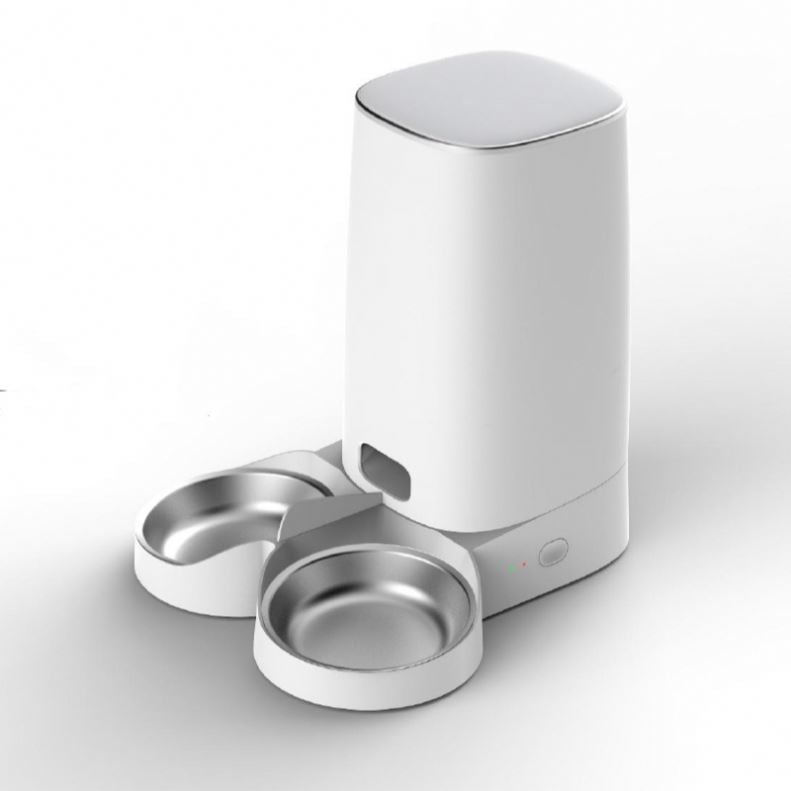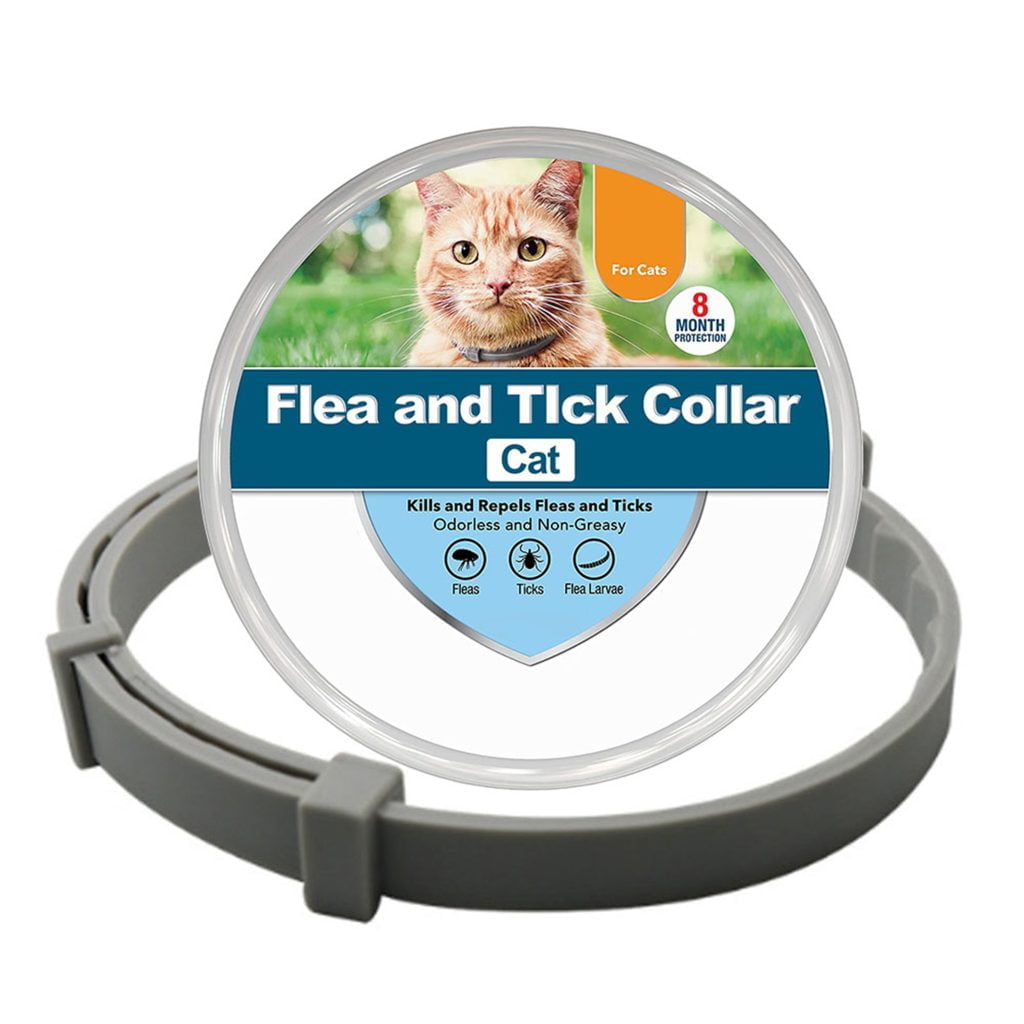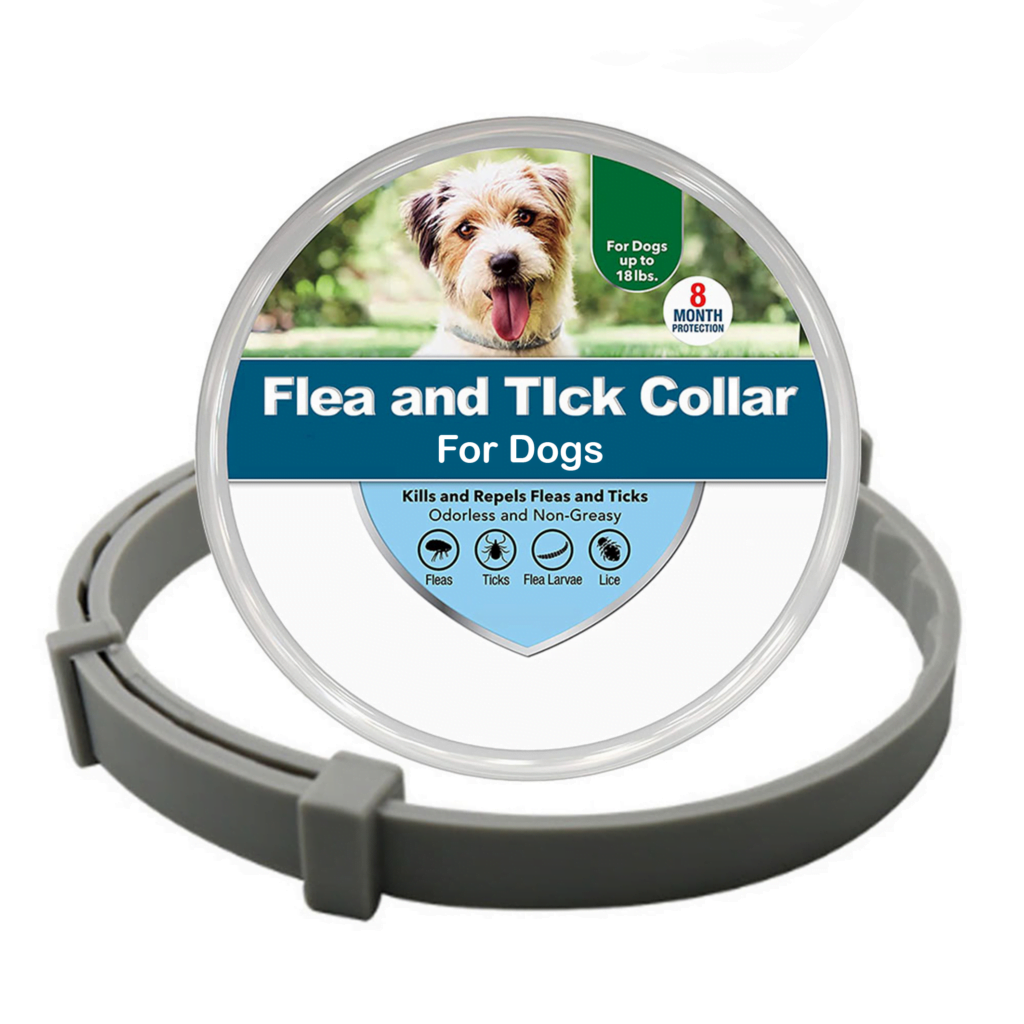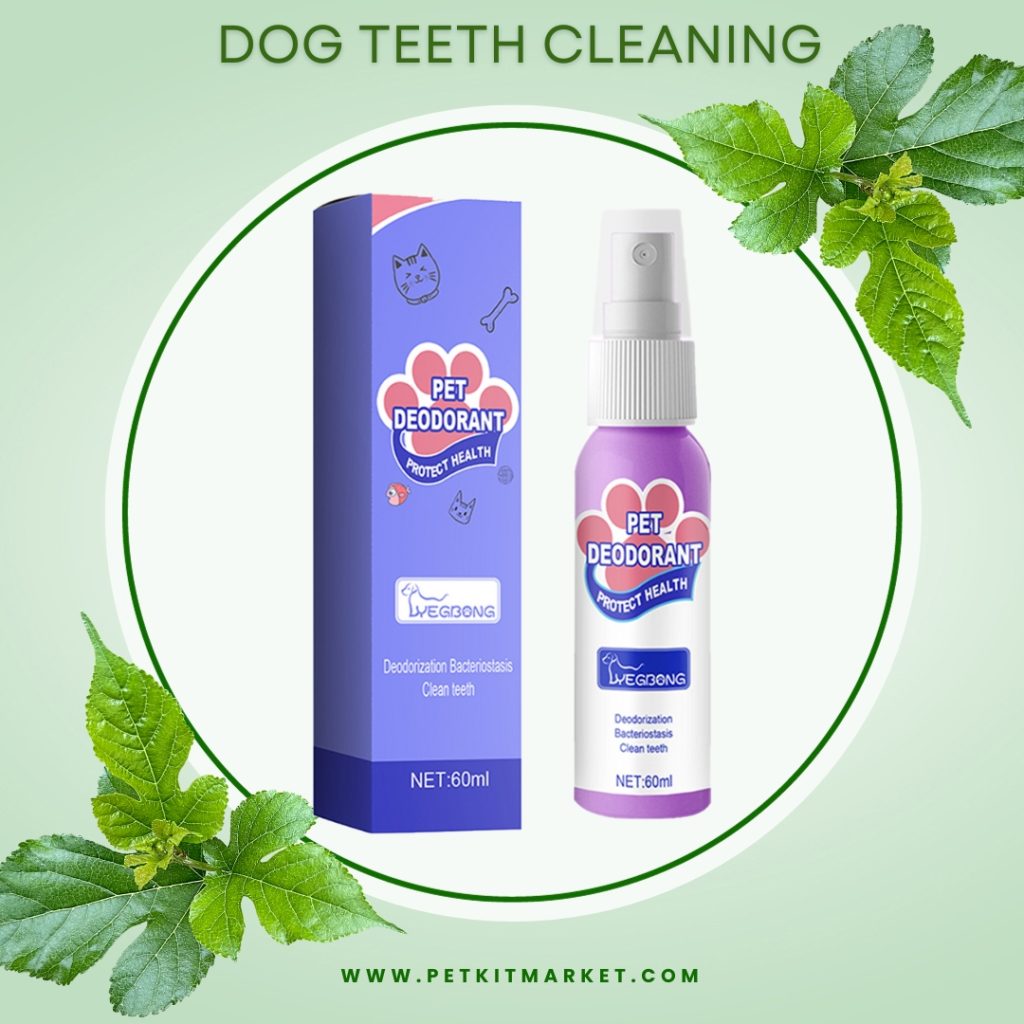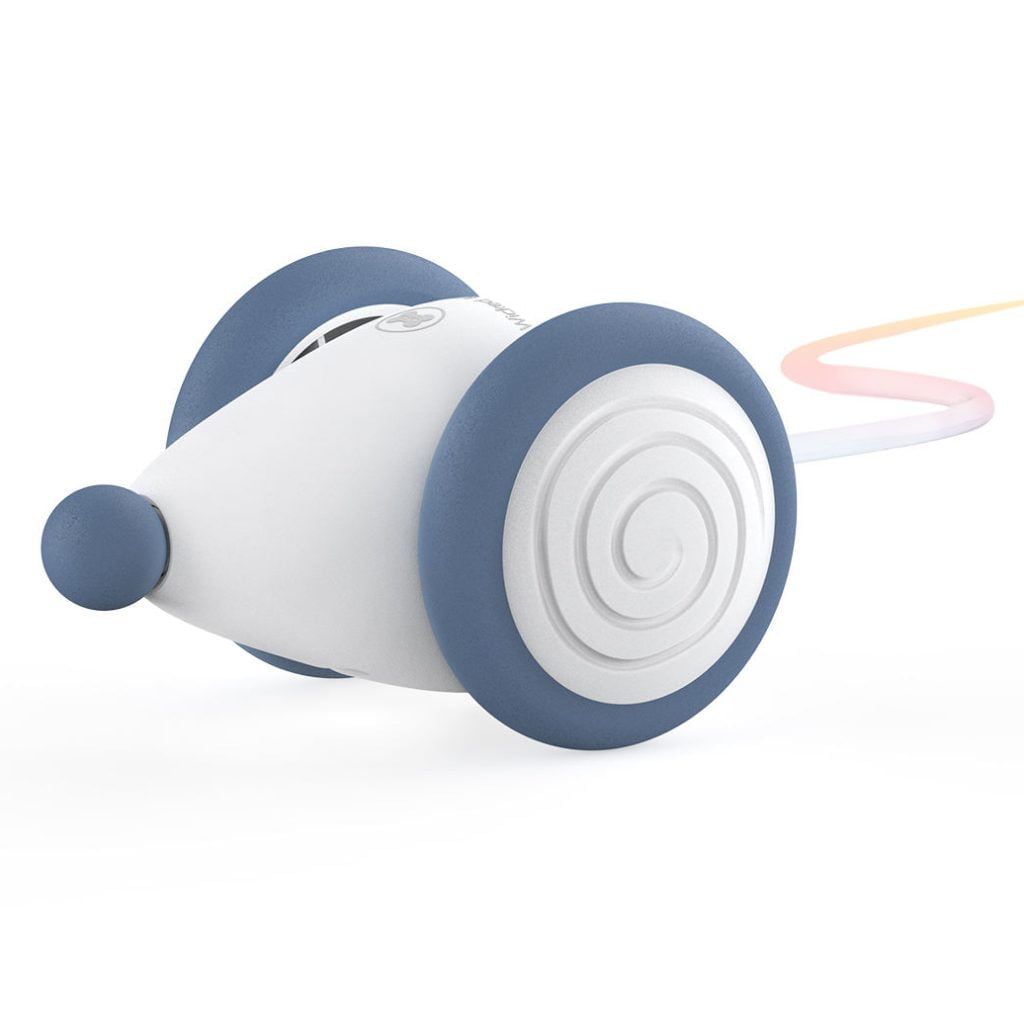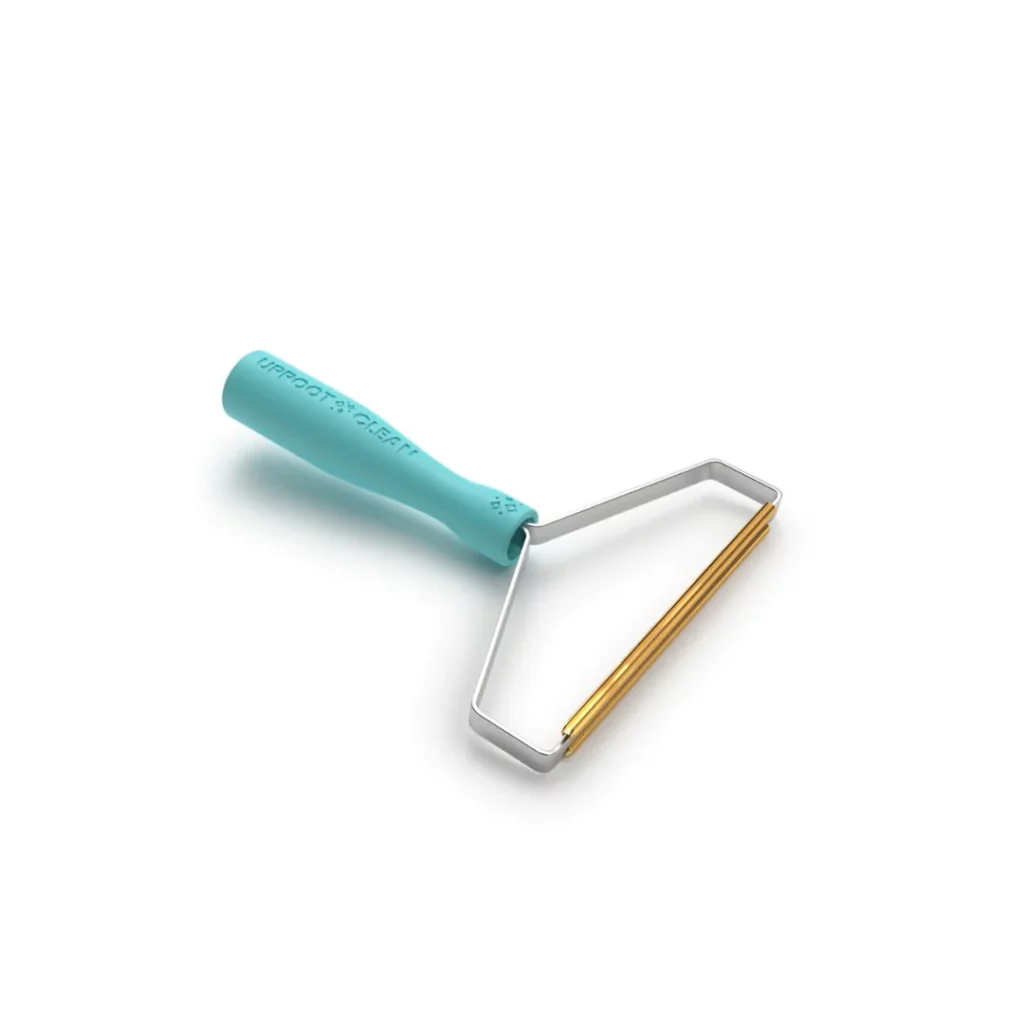Did you know that a snack as seemingly harmless as a single grape could potentially lead to your furry friend’s acute kidney failure? Grapes, a healthful treat for humans, are surprisingly and dangerously toxic to dogs. When it comes to pet safety and pet poison prevention, every pet owner should understand Dog Grape Toxicity to protect their furry friend.
The peril remains consistent across all types of grapes and raisins, whether seedless or seeded, commercial or homegrown, and it makes no difference whether or not they’re organic. Items containing these fruits like cereal, trail mixes, or baked goods can pose a significant risk. Unfortunately, there is no definitive toxic dose known, making every incident of grape consumption a potential emergency. Therefore, steps to prevent dog kidney failure must be taken immediately if ingestion is suspected to avoid dog grape toxicity.
Key Takeaways
- Grapes and raisins, regardless of type, pose a serious toxicity risk to dogs.
- No known safe consumption amount means even minimal ingestion could be harmful.
- Organic, commercial, seedless, or seeded – all grapes are equally dangerous to your pet.
- Prompt veterinary care can prevent the progression to kidney failure.
- Keeping grape-contained products out of your dog’s reach is key to pet poison prevention.
Understanding Dog Grape Toxicity
When considering the diet of your beloved canine companion, it’s crucial to recognize that not all human food is safe for dogs. Grapes and raisins, while healthy snacks for people, pose a serious risk to dogs. The adverse reactions stemming from grape ingestion in dogs lead to a critical conversation about the mysterious grape toxin that can cause severe health issues in our pets. Let’s delve into why these seemingly innocuous fruits are categorized among canine toxic fruits and what measures you can take to protect your furry friend from dog grape toxicity.
What Makes Grapes and Raisins Harmful to Dogs?
The harmful effects of raisins on dogs are similarly significant when they consume grapes. There is an alarming disconnect between the harmless nature of these fruits for humans versus their toxicity in dogs. The concerning fact is that the exact substance causing renal failure and other health complications in dogs after eating grapes or raisins has eluded scientists to date, leaving owners and veterinarians on high alert for any grape ingestion in dogs.
Identifying Toxic Grapes and Raisins Varieties
It’s a common misconception that only certain varieties of grapes and raisins are toxic to dogs. The reality is much graver. All cultivars, colors, and forms of grapes and raisins have been implicated in canine poisonings. Whether homegrown, store-bought, seedless, or with seeds, no grape or raisin is safe for your dog. The risk extends to all canine breeds and sizes, making it imperative to avoid exposure altogether.
The Mysterious Toxin in Grapes
The quest to pinpoint the specific cause of grape and raisin toxicity in dogs continues as researchers have yet to identify the mysterious grape toxin. Debate lingers around potential culprits, including mycotoxins and naturally occurring salicylate compounds within grapes. Nevertheless, none of these candidates has been conclusively linked to the symptoms and reactions observed in dogs suffering from grape toxicity.
Individual Sensitivity and Non-Determined Toxic Dose
Add to this the unsettling detail that dogs display varying levels of sensitivity to grape ingestion, which further amplifies the importance of keeping these fruits out of reach. The absence of an established toxic dose only heightens the jeopardy, as even the smallest amount can lead to poisoning. Hence, dog owners must treat every situation as potentially hazardous and act swiftly should their dog consume any grapes or raisins.
Recognizing the Symptoms of Grape and Raisin Poisoning
Being aware of the symptoms of grape toxicity in dogs is vital for any pet owner. These signs of raisin poisoning can point to the onset of severe health issues, including canine kidney failure symptoms. Initially, within a day of consumption, your dog may experience:
- Vomiting
- Appetite loss
- Lethargy
- Diarrhea (in some cases)
The progression to more acute symptoms could indicate kidney damage. Be on the lookout for:
- Severe nausea
- Vomiting with a distinctive uremic breath odor
- Abdominal pain
- Unusually high thirst and frequent urination
If the toxicity advances, critical and life-threatening signs such as these may arise:
| Symptom | Indication |
|---|---|
| Increased blood pressure | Potential organ damage |
| Reduced urine output | Kidney failure risk |
| Mouth ulcers | Uremic toxicity |
| Seizures | Systemic complications |
| Coma | Severe neurological effect |
Immediate veterinary attention is crucial if you observe any of these signs. Timely treatment can be the difference between recovery and severe, lasting damage, or worse, fatality.

Immediate Actions to Take If Your Dog Ingests Grapes
Discovering that your pet has ingested grapes can trigger immediate concern. Here’s a structured plan to tackle the situation effectively, with steps focusing on emergency vet contact, the Pet Poison Helpline, and responsive first aid measures.
Contacting Your Veterinarian or Poison Helpline
If your dog consumes grapes or raisins, time is of the essence. Pick up your phone and dial the emergency vet contact immediately. Outside regular hours, your next best option is the Pet Poison Helpline near you. Their team can provide you with critical steps to follow and whether inducing vomiting is suitable for your dog’s condition.
Inducing Vomiting: Is It Safe for Your Dog?
Inducing vomiting in dogs after grape ingestion can be a contentious topic. If advised by a professional, it may need to be done within a narrow window of approximately two hours post-ingestion. However, this should only be attempted after consulting with your vet or the Pet Poison Helpline, as there are risks if not done correctly or in certain health conditions.
Using Activated Charcoal for Toxin Absorption
After potentially inducing vomiting, using activated charcoal for dogs can help to absorb remaining toxins in the stomach and intestines. This normally follows a vet-approved dose for your dog’s size and should not be done without veterinary guidance due to the risk of aspiration or adverse reactions.
These immediate actions serve as crucial initial steps to mitigate potential toxicity after your dog accidentally ingests grapes. Consulting professionals through an emergency vet contact or the Pet Poison Helpline is essential for receiving the most appropriate and lifesaving advice.
The Diagnosis and Treatment of Dog Grape Toxicity
If your dog has ingested grapes, time is of the essence. Understanding how veterinarians go about diagnosing grape toxicity can assist you in managing the situation effectively and ensuring that your pet receives the best possible dog poisoning treatment. Veterinary care for grape ingestion becomes crucial from the moment you suspect your dog has eaten grapes.
Diagnosing grape toxicity begins with taking a thorough history of your pet’s potential fruit ingestion, and any evidence such as remnants in vomit will be pivotal. A series of diagnostic tests will likely include a Complete Blood Count (CBC), serum biochemistry, and urinalysis. These tests are essential for assessing the severity of kidney damage and planning the appropriate course of treatment.
- Induced Vomiting: To prevent absorption of the toxin, veterinarians may induce vomiting if the grapes or raisins were eaten recently.
- Activated Charcoal: This may be administered to bind any toxins that remain in the stomach, preventing further absorption into the bloodstream.
- Intravenous Fluids: Vital for flushing the kidneys and supporting renal function, IV fluids are a cornerstone of dog poisoning treatment.
- Medications: These may include anti-nausea meds, antacids, or blood pressure medications, as needed.
The prognosis for your furry friend relies heavily on the promptness and effectiveness of the treatment administered. The faster your dog receives veterinary care for grape ingestion, the better the chances of a full recovery. Be aware that even a small amount of grapes can be highly toxic to some dogs, depending on their size, health, and individual sensitivity.
| Diagnostic Test | Purpose |
|---|---|
| CBC (Complete Blood Count) | To check for signs of anemia or infection |
| Serum Biochemistry | To assess kidney function and look for any abnormalities |
| Urinalysis | To evaluate kidney function by determining the concentration of urine |
The treatment plan may differ significantly from case to case, so it’s essential to follow your veterinarian’s recommendations closely. Keep your vet informed about any changes in your dog’s condition, and don’t hesitate to ask questions if something about the treatment plan isn’t clear to you.
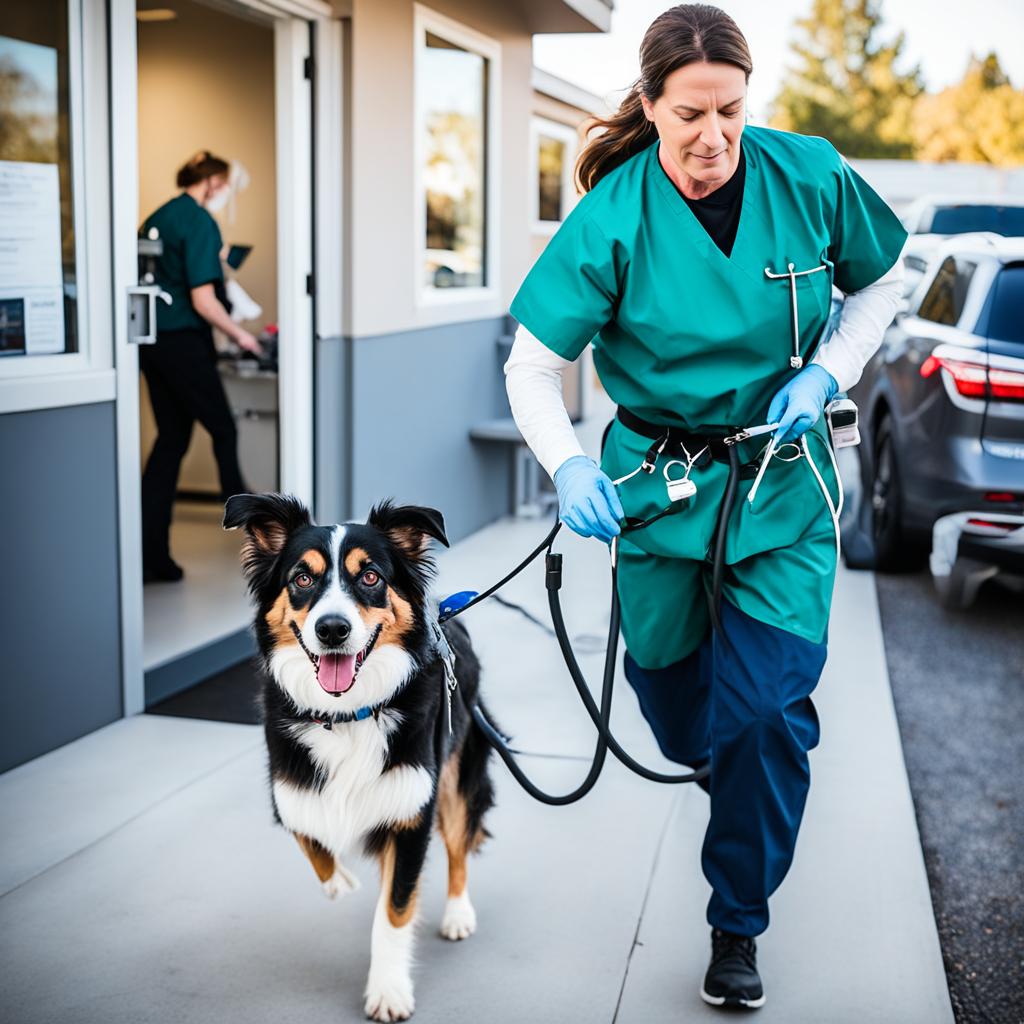
In conclusion, your vigilance and quick response are paramount when dealing with potential grape toxicity. By knowing what symptoms to look for and understanding the steps of diagnosing grape toxicity, you are an important ally in your dog’s health and well-being following possible grape or raisin ingestion.
Recovery and Management of Grape and Raisin Poisoning
For dogs that have endured grape or raisin poisoning, the road to recovery is closely tied to diligent dog kidney monitoring and post-poisoning care. Understanding the care process and what to expect during recovery is essential for pet owners navigating through this challenging time.
Monitoring Kidney Function and Ongoing Treatment
After the initial hospital treatment for dogs, close kidney function monitoring is ongoing. The careful observation following discharge often includes regular blood work and checking for any long-term impacts that may affect kidney health.
Hospitalization and Supportive Care
Hospitalization could be required for a few days, delivering critical supportive care treatments such as IV fluids and medications. This level of attention helps mitigate the toxins’ impact and supports kidney recovery, crucial in the aftermath of fruit toxicity.
Prognosis Factors for Poisoned Pets
The pet prognosis after toxicity is determined by a range of factors, such as the rapidity of treatment and the degree of renal impairment. Below is a detailed table showcasing the prognosis based on various critical aspects:
| Treatment Timeliness | Amount Ingested | Kidney Failure Presence | Post-treatment Improvement |
|---|---|---|---|
| Immediate | Small | No | High |
| Delayed | Moderate | Yes | Moderate |
| Late | Large | Advanced | Low |
With proactive care and a closely monitored treatment plan, dogs have a good chance of recovery and returning to their spirited selves.
Prevention Strategies to Protect Your Dog
When it comes to grape and raisin toxicity prevention, your vigilance is key. The first step is ensuring these potentially lethal snacks are out of your furry friend’s reach. Remember, even small quantities can be hazardous, so treat grapes and raisins with the same caution as medications or cleaning products. Securing your snacks in cabinets or containers with dog-proof latches can prevent a life-threatening situation before it begins.
Beyond physically shielding your pet, educating pet owners is a powerful tool in the fight against dog grape toxicity. Spread the word about the dangers of sharing human food with canines, particularly foods with hidden risks like grapes and raisins. A shared commitment within your household and among guests can fortify the safety net around your pet. Additionally, cultivate an understanding of the broader spectrum of toxic foods to avoid, which includes substances such as chocolate, xylitol-containing products, and certain savory treats like onions and garlic.
Ultimately, keeping dogs safe from toxic foods comes down to proactive measures and the dissemination of knowledge. As pet owners, it’s incumbent upon us to engage in practices that safeguard our dogs’ health daily. By maintaining a toxin-free environment and informing others of the risks, we play an essential role in ensuring the well-being of our loyal companions.
Featured Products
Automatic Cat Feeder: Smart Control, 4L Capacity, WIFI Connection & Anti Clog
$30.05 (-25%)
Automatic Dog Feeder: Smart Control, 4L Capacity, WIFI Connection & Anti Clog
$30.05 (-25%)
Cat Bed with Thick Cover, Warm, Non-Slip and Waterproof Bottom
$10.69 (-29%)
Cat Flea & Tick Collar – Guaranteed results For 8 Months
$13.30 (-40%)
Cat Tree with Scratcher – Modern & Tall for Climbing and Relaxing
$51.40 (-29%)
Dog Flea & Tick Collar – Guaranteed results For 8 Months
$13.30 (-40%)
Dog Teeth cleaning and tartar removal Spray
$6.42 (-29%)
Endless Fun Cat Toy – Interactive Smart Electric Mouse
$21.40 (-29%)
Engraved Dog Collar: Elegant and Crafted with Premium Leather
$6.40 (-29%)
Human dog bed, Super Big and Comfy: Perfect for the Whole Family
$83.98 (-30%)
Reusable Lint Remover for Home, Car & Pets – Eco-Friendly & Easy-to-Use
$10.69 (-29%)
Smart Robotic Litter : The Most Advanced Cat Litter Box – Expert Choice
$192.83 (-29%)
Special Lint Remover : Guaranteed results for Clothes & Home
$13.30 (-40%)

